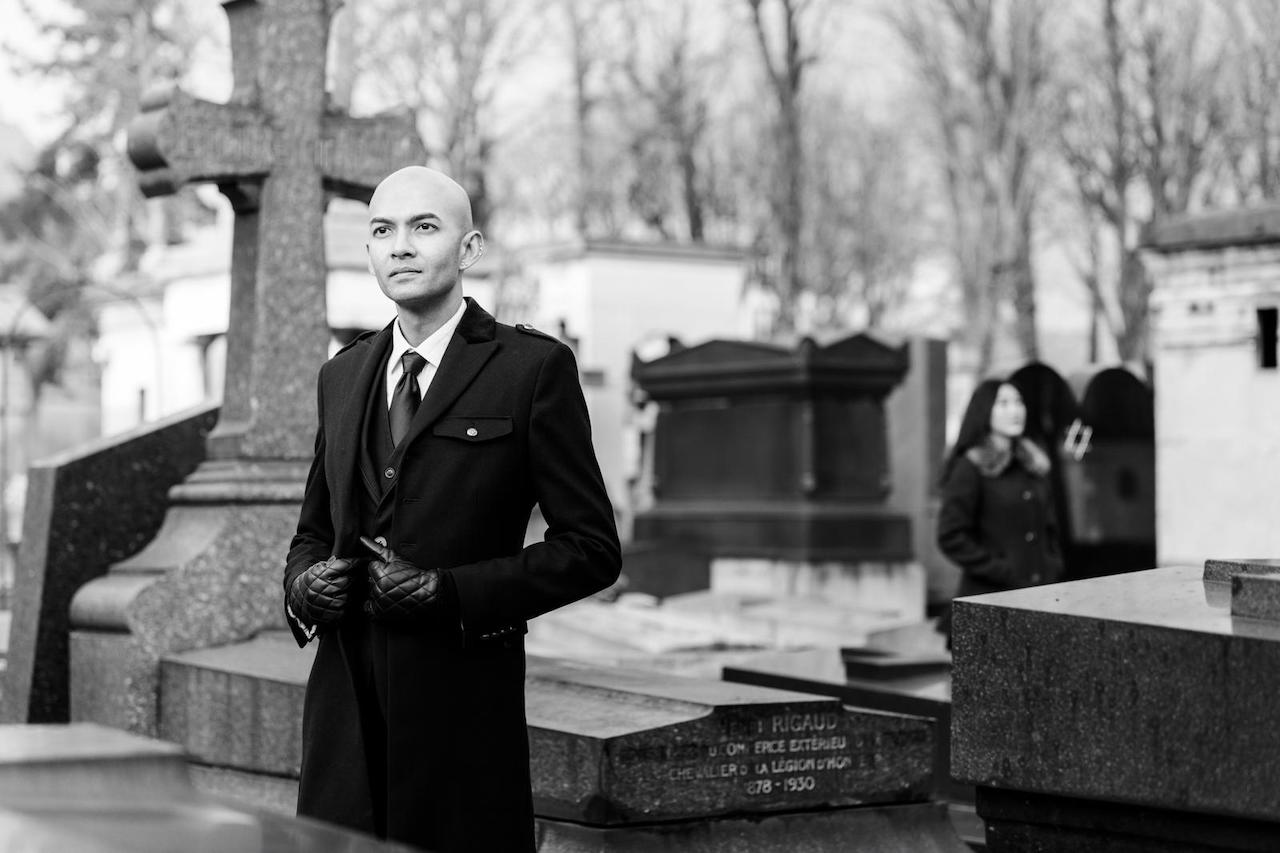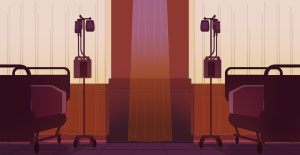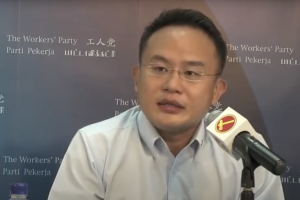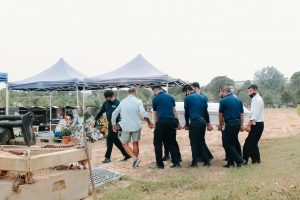When Singaporeans think of a funeral director – or anyone who works in the funeral industry for that matter – chances are the image in their mind’s eye is one of a portly old man who converses by shouting in a rough tongue.
You’d probably assume that he goes about his job in the most mechanical of ways too. After all, there’s no room for sentiment when you deal with death on a daily basis.
Yes, this might be a broad generalisation but since the funeral industry is something few concern themselves with until absolutely necessary, our collective perception of funeral directors remains shrouded in mystery.
In fact, I’ve always thought of them that way until I met Chris Cheah, the 40-year-old boss of Westbound Funerals.
Eloquent, charismatic and immaculately well-dressed, Chris is the antithesis of everything I assumed a funeral director would be. If I’m completely honest, his cool demeanour coupled with his profession even makes him slightly intimidating.
Did he have a morbid fascination with death? Was he desensitised to witnessing grief? Who was the man behind the suit?
To find out, I sat down with The Don and his lovely wife, Mandi, for a conversation on death as well as life.
Chris: Well, usually the first thing that happens is the living, panic. There’s a lot information to process and an overwhelming feeling of loss to deal with. Families tend to scramble and they’ll start asking friends if they know any undertakers.
As soon as I get the call, I make it a personal point to be there within the hour no matter what time of the day it is. Meanwhile, I’ll activate my men to collect the body from the morgue and bring it to the embalming room.
I try to put the families at ease when I meet them. I’ll render whatever assistance they require and walk them through the entire process.
On my end, it’s important that I try to take away as much work and stress from them as possible. They’ve been at the hospital for hours, sometimes days and I don’t want them running around when they’re going through the loss and shock. I’ll get them to hand me the relevant documents and I’ll handle everything.
Once everyone and everything is ready, we’ll start the ceremony. It’s a 24/7 business. It never sleeps and you don’t either.
J: But why did you choose this line of work?
C: Before I got into this industry, I was managing a supercar rental company and life was pretty sweet. I was good at my job and the money that came in was great. But after a couple of years, the partners decided to sell the business off to another entity who already had a team in place. They didn’t need me and to cut a long story short, I was essentially overqualified for another job in the industry.
I couldn’t find anything which would allow me to put my experience and expertise to use so I got very depressed. That’s when I decided to find work in an area that would allow me to shun the world and fade into oblivion. While scouring the back-pages of the classifieds, I came across an ad looking for a funeral assistant and that was it. I hit the reset button.
I started off as a “coolie” as they call it in the business, carrying things around, preparing caskets, collecting bodies etcetera. It was manual labour and I didn’t have to deal with families. When everything was done, I just waited for the next one.
Again, I was good at my job and was head-hunted by other companies so I moved around a few times. After about 6 years learning the ropes, I accepted the position of funeral director because I felt I was ready. Only then did I start dealing with families.
I guess over the years in the industry I realised that I loved the job and serving the families. It gave me a purpose.
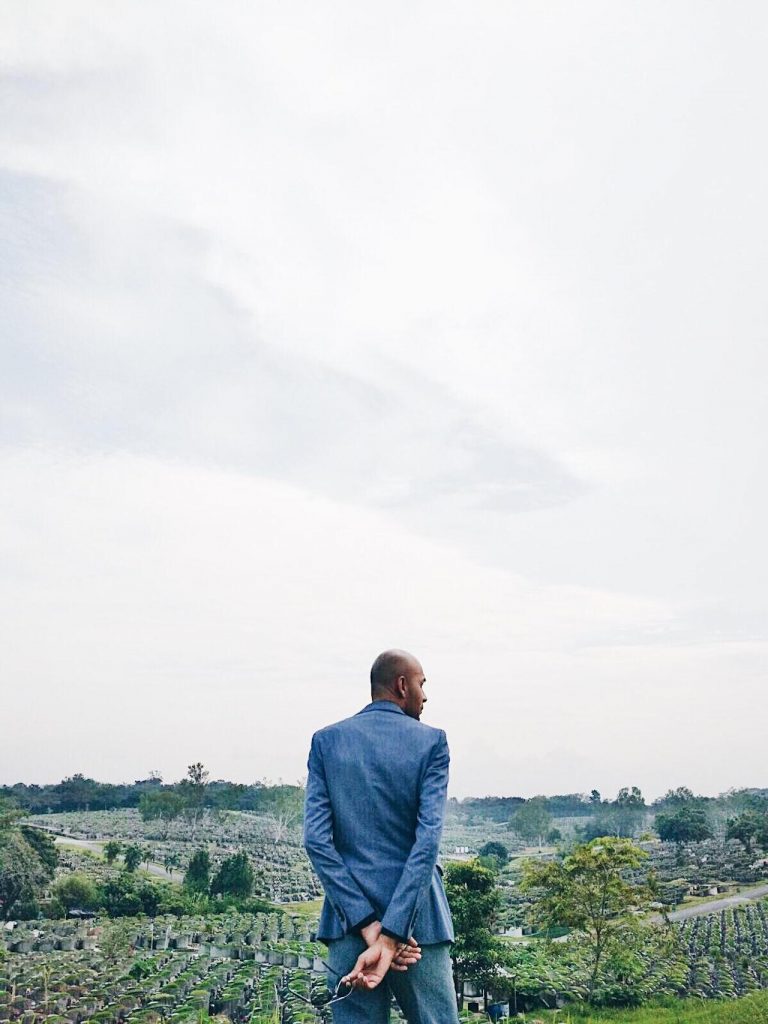
C: I think my dressing raises a lot of questions. Most of the time when I arrive at the house (if the person passes away at home), families assume I’m the doctor or the Investigating Officer. Nobody thinks undertakers dress so “nicely” and I’m able to see their confusion.
But for me, it’s a sign of respect to the family and I want to maintain a level of professionalism for both myself and my company.
I’m trying to change the stereotypical perception of the industry. Not all undertakers are of a certain age, intimidating or shabbily-dressed perhaps. Nowadays, there are also well-dressed and educated people doing this too.
Hopefully people can be more open about death and dying. They should be more informed about what they’re getting into when it comes to hidden costs and “new and modern” changes (which aren’t actually new) such as ushering, plated food service, air conditioning and expensive setups.
These things make for a fabulous profit margins but I believe they’re not necessary. A funeral should always be about friends, family and acquaintances going to pay their last respects to the dearly departed. And for the family to take the time to celebrate the person’s life.
So yes, I think the way I dress is definitely necessary when it comes to what I hope to do in my industry.
My attire aside though, one of the first things they ask me is if I’m Chinese. Even though my name card has my mandarin name, I don’t exactly look like Chinese so they get very intrigued by that too.
However, as soon as we sit down and I know what dialect group they’re from, everything changes. I can speak mandarin and all the local dialects fluently so it puts them at ease and connecting with the family is easier.
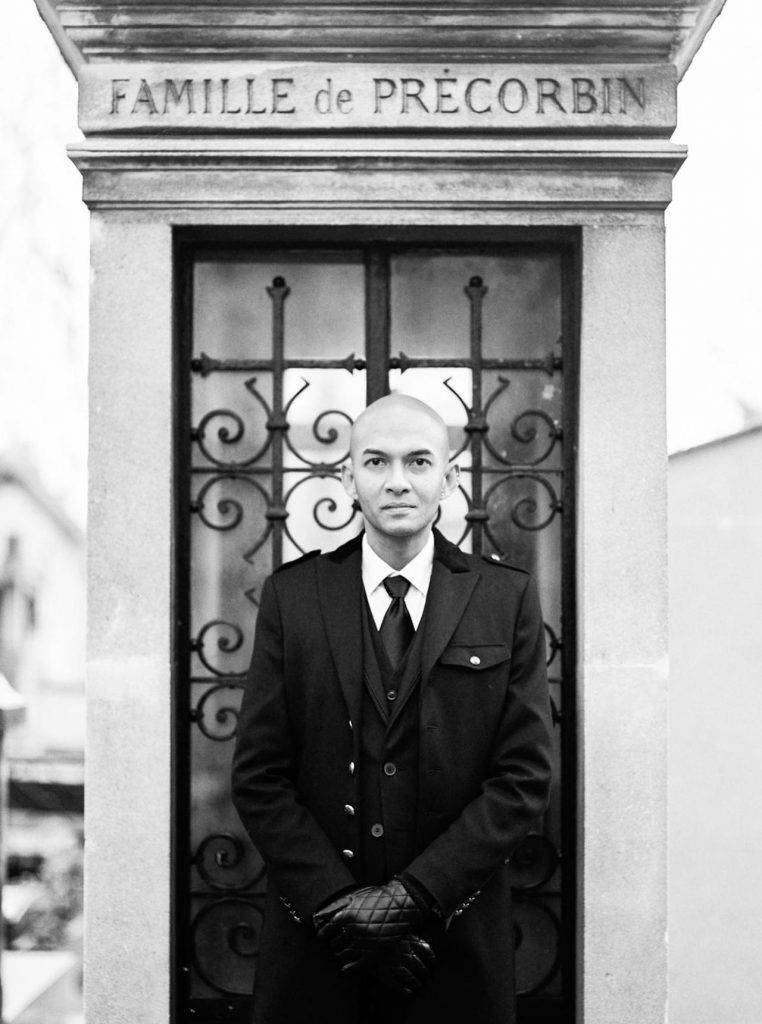
C: That the working hours wreak havoc on your health and personal life.
It’s not that I don’t have time for anything else besides work. It’s just that I’m on standby 24/7. That’s mentally exhausting. You’re in this state where you’re constantly on edge and you don’t really sleep well. It’s like how you don’t switch off a mac computer. You put it on standby and when you want to use it, within 3 seconds, it’s ready to go.
On my day off, if I plan something, I don’t even know if I can see it through. For example, if I go watch a movie and my phone rings, I have to answer it. The families take priority and if I’ve got to go, I’ve got to go.
I’m a very hands-on kind of person and I still handle everything myself so going on holidays is extremely tough too. Even overseas, I remain contactable and it’s very nerve-wracking when my phone’s on airplane mode during the flight. Of course I’ll transfer the calls to one of my guys and just hope that if a call comes in, they will serve the families the way I do.
J: How does it feel being constantly surrounded by death? Does it take a toll on you emotionally?
C: Yes, very much so.
It’s not just a business. I’m also part of the family for that period and I feel their emotions. I grieve with them. Despite the many years in this industry, I’m not desensitised. I still cry.
The day I don’t feel anything is the day I think I’d have become too detached. Yeah, the business will still run but I’ll be more business-like and that’s not my definition of success.
I’m not saying detachment isn’t good, sometimes being detached allows you to see things clearly and it doesn’t mean you can’t arrange the funeral properly or do it beautifully. But I just can’t.
After a while it does get very heavy but I guess I actually do want to feel it. I want to be there in the moment because I think that allows me to do my job to the best of my ability.
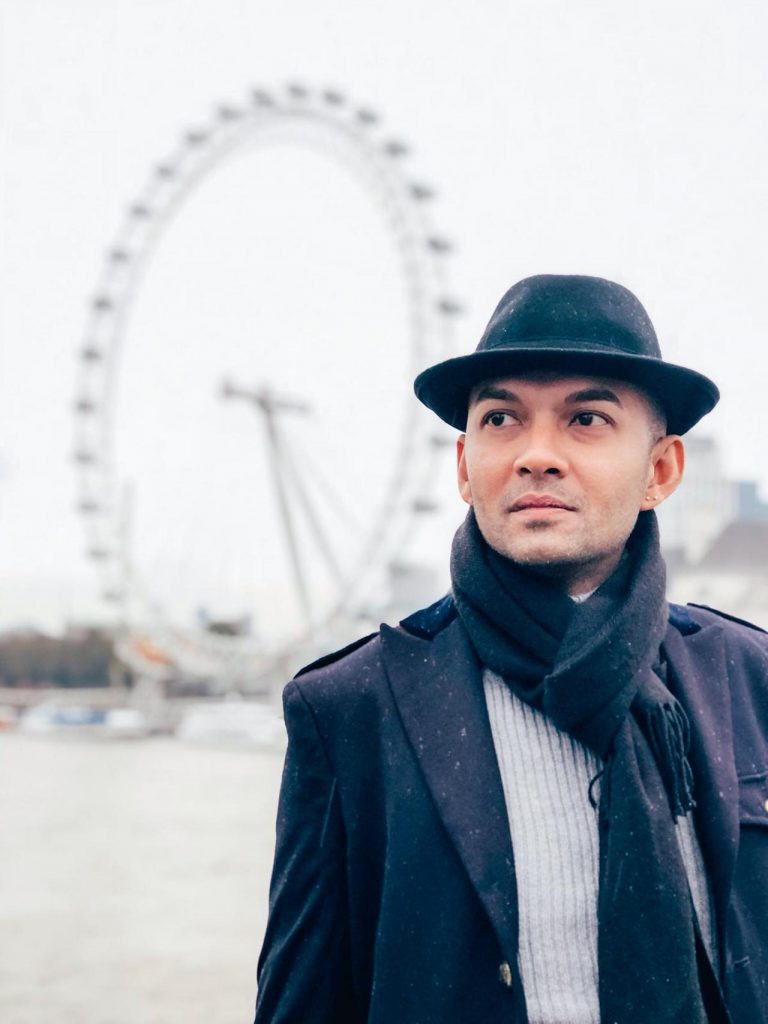
Mandi: The whole story about how we met for the first time is quite funny. He was working as an Uber driver part-time and he came to pick me at the airport with two of my girlfriends. I remember it was 9am on a Sunday morning and when he came out of the car, he was in his suit so I thought to myself ooookay, did this guy party last night then continue driving?!
When he came to help me with my luggage, he was quite shocked at how heavy it was but he refused to let me help, telling me that he carried dead people for a living.
Naturally, I freaked out but I soon realised he was a professional.
We kept in touch after and I slowly got to understand him and what he does. I began to see that it wasn’t a dirty job or scary. Instead, it’s a profession that deserves a lot of respect and admiration because it’s really not easy.
When he’s working, he’s really focused and is 100% with the family. Even on our wedding night, after we were back in our room, his phone rang and we went down to the hospital together.
C: Yeah, we were in our wedding day best and went to serve the family. She’s actually been with me for quite a few jobs because she wanted to experience and learn. She even went through the process of embalming and helped me dress the body before.
M: I was curious about the industry and I figured it would be good to be involved and experience first-hand what he does. Sometimes his mood is very heavy and you can feel that something’s not right.
C: Some cases are more difficult. Those in which the deceased are very young especially. It’s like their life is taken too soon you know? The death of children and babies really gets me. I find it very, very hard to deal with and it drives my brain crazy. It’s very emotional.
M: When he comes back like that, I know that he’ll need his space and I’ll let him do what he needs to do to get past it. I’ll just hug him and let him know that I’m there for him.
C: I met this amazing woman in August and married her in November. Since then, she’s been my rock. She took my greyscale world and splashed a myriad of colours in it. She saw a dark, lifeless soul with a heart made of stone and she breathed life into it. It was never too difficult between us. We just clicked. We didn’t have to fix anyone or anything.
It was pure fate that our paths crossed in the unlikeliest of manners and that was it. I immediately felt warmth and love.
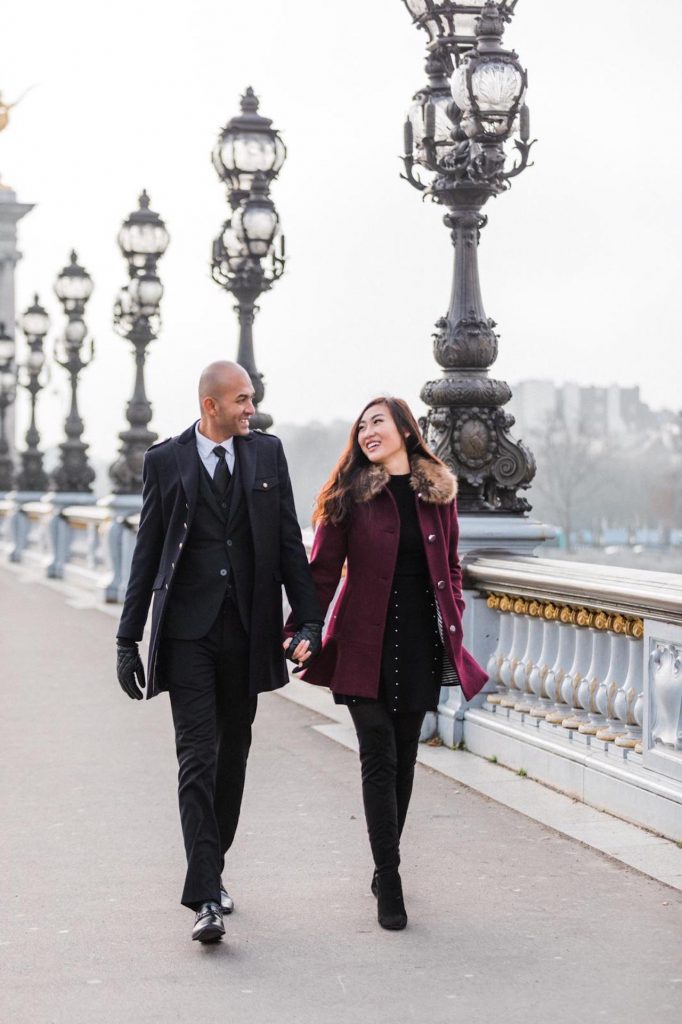
C: If it were at all possible, I’d want to completely absorb and carry their pain for them. But to answer your question, no. If anything, I think I try to go beyond the professional limits.
You see, understanding and comforting the families isn’t actually in the job scope. A funeral director just sets up the funeral and makes sure everything runs smoothly. Think of it like event management.
So I have to give the credit to my ex-boss, Ang Jolie Mei, who based her business on grief counselling. I think she’s one of the pioneers when it comes to emphasising the importance of grief and I appreciate learning that from her. That it’s more than just a job coordinating everything.
I learnt how to empathise with the family and I read up on grief so I can give the families that little extra help. To be able to recognise how the person is grieving, what stage they’re in and whether they’re grieving properly. If they’re not, or don’t even know how to start the process, I’ll then try to steer them in the right direction.
Grief is a necessary process and you have to go through it in order for you to heal and feel better.
J: Speaking of grief, is there a best way to approach or comfort someone who’s grieving? How do you even broach the topic of payment to someone in that state?
C: No, there’s no universal way. Everyone grieves differently and they each have their own methods of processing and dealing with things.
Books can’t teach you how to approach someone. It’s something you learn through trial and error. Experience will tell you which stage of grief a person is most likely in and how to approach him or her. You’ll instinctively know what or what not to say and when to say it. There’s no standard grief counselling. It’s all about feeling the situation.
As for payment, it’s not something that’s discussed initially. When I first meet the family, we only talk about the packages and my prices are listed very clearly. It might seem expensive to some but that’s because it covers everything. There are no hidden costs which is extremely important in preventing bill shock when the service is over. After we settle on a package that’s within their budget and suits their needs, we concentrate on the wake and funeral over the next few days.
In Singapore, the culture is for all the various suppliers to collect the money on funeral day but I don’t want to do that. Funeral day is not for this. The family is grieving. They’re going through the ceremonial rites and rituals. It’s only right that they handle all of that in peace.
Only once everything is over, I’ll do up an itemised billing and hand it to them. Sometimes the families want to count the condolence money or if the family is big, the payment is split amongst the relatives. It takes time and more often than not, it’s the families who call me to ask where to make payment. So far, it’s been very smooth. I’ve never had to worry.
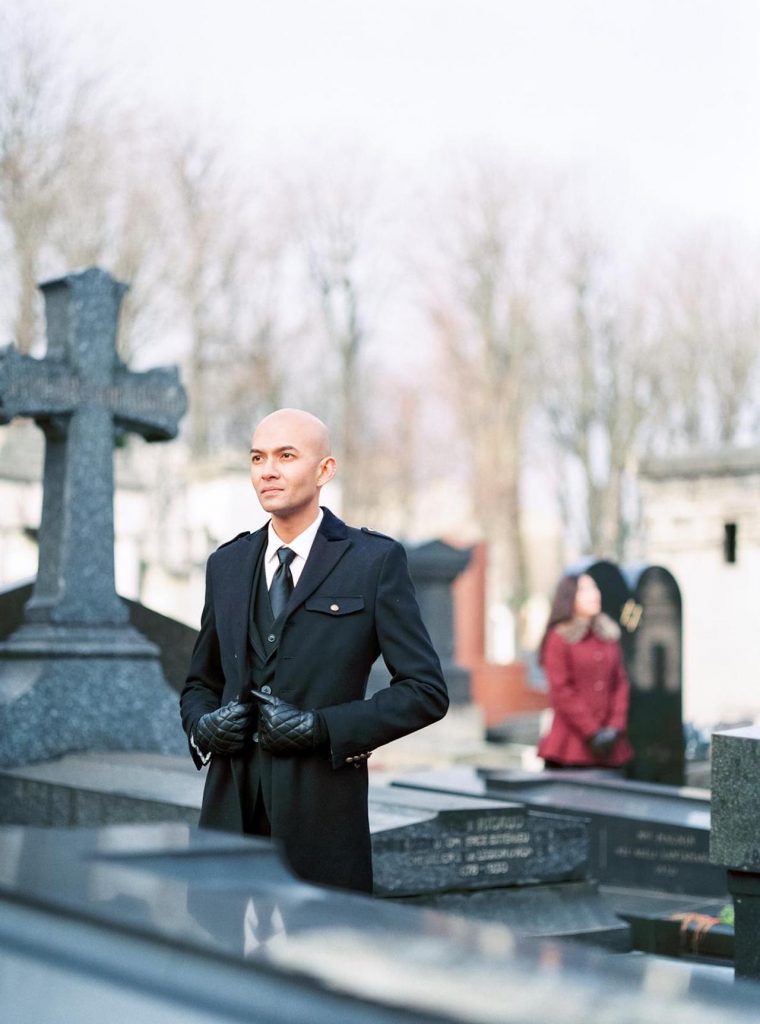
C: I didn’t grow up in a proper family per se since I was in foster care from a young age. It was pretty rough and because of that, I have always been very detached from the word “family”. I didn’t have close bonds with the people around me and so I always wondered what that sense of love and loss would feel like.
In my job, and especially with the way I get emotionally involved, I’ve been able to both see and experience that.
When your times comes, it doesn’t matter if you’re rich or poor, powerful or weak. No one is invincible and everyone ends up lying there. Everyone is the same that way.
It’s an extremely humbling thought and I very often use it to remind myself that we’re all human; we’re all going to end up at the same place.
That said, I definitely don’t mean that you can just not bother about whatever you choose to do in life because you know you’re going to die anyway.
You make the most out of the time you have and try to help as many people as you can along the way. Nobody truly knows what happens after you die so just build good karma whenever possible. There’s no harm in that.
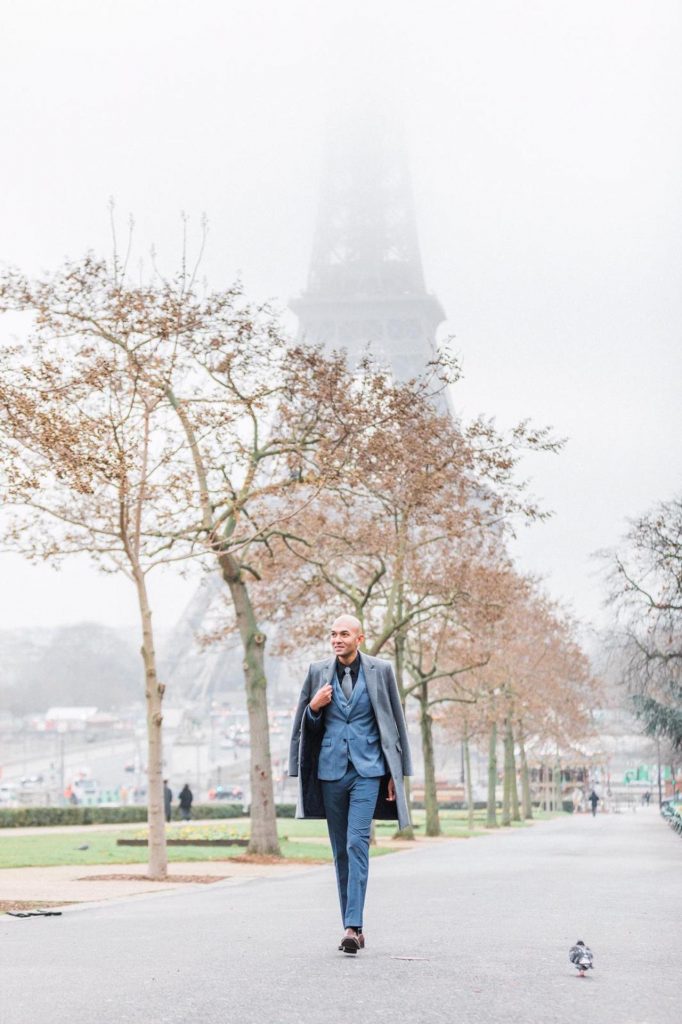
C: I’ve never really thought about it to be honest.
A lot of people – especially the younger ones – have very modern ideas on what they want their funeral to be like. They want to go out with a bang and want their funeral to be a big party.
To me though, that’s unrealistic. I always tell them that when they’re older and the time approaches, it’s different. You’ll start thinking about stuff like who would even bother to attend, if there should be religious rites or where your soul goes after you die. That’s when fear and regret starts to creep in for most people.
They reflect on how they lived their lives and the people they might’ve wronged. But aside from wondering how to make things right, I think they also wonder what people will think of them when they’re lying there. What people, or even their own family members would say about them after they’re gone.
That thought of not being able to justify my actions is something that’s very scary for me. It’s changed the way I live my life and keeps me in line.
You see, it’s not about having a flashy or lavish funeral. It’s about how you want to be remembered. You don’t have to be a major philanthropist or whatever. It’s in the simple things. You’d want people to come and wish you well after all.
I guess I would just like a normal funeral; nothing too fancy. People can come to see me one last time and say goodbye. Hopefully they’ll say nice things and not “good riddance”.
Personally, “he was alright” or “he was okay” is good enough for me. But of course that doesn’t apply to my wife.
I aim to be the best husband so hopefully I’ll be more than just “alright” to her when I die!

